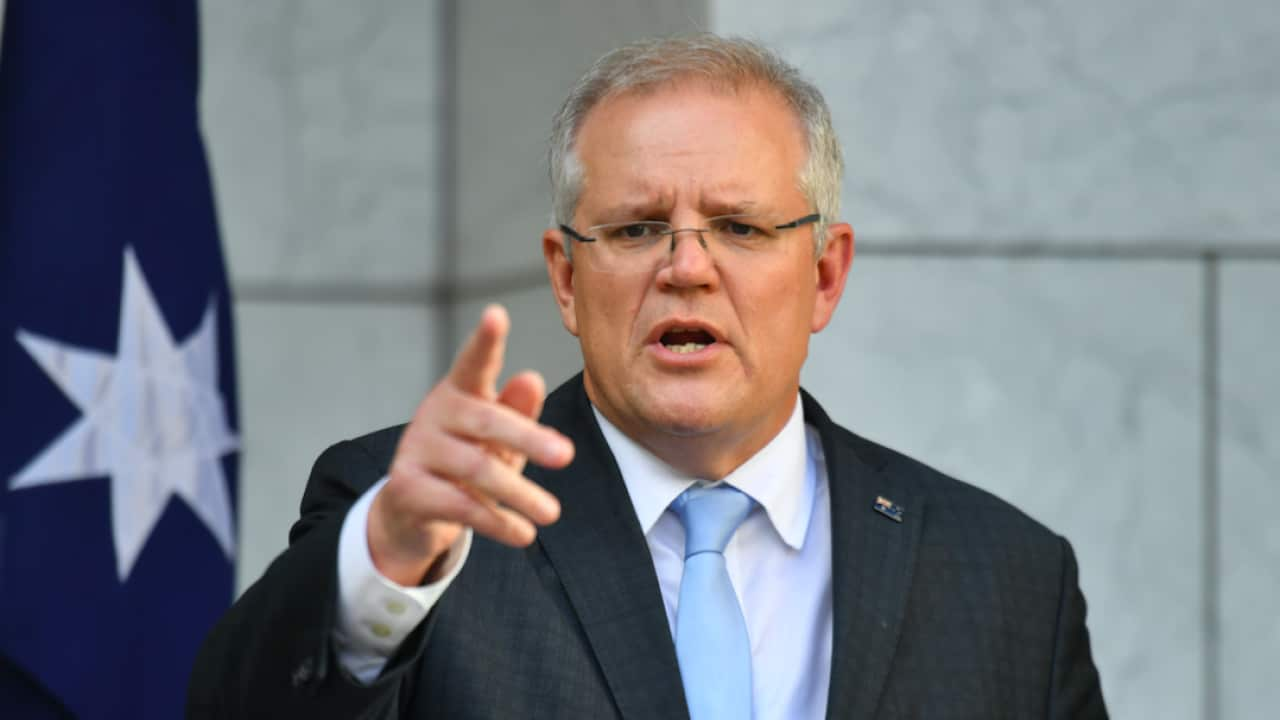An Australian expert has warned that a coronavirus vaccine being tested in the United Kingdom this week has "little chance" of success.
The UK government is "throwing everything" at developing a Covid-19 vaccine, Health Secretary Matt Hancock has said as he announced that human trials led by the University of Oxford will begin this week.
But Professor Nikolai Petrovsky from Flinders University said the study is highly experimental and had less than 10 per cent chance of success.
"It's an unproven technology, this is very experimental, there is a very high risk of failure because it's not an established human vaccine platform," he told SBS News.
Even if the trial was a success, he said it may not be logistically possible to make the vaccine in large volumes.
Mr Hancock, who is under fire over his 100,000-per-day testing target and a lack of protective equipment for health and care staff, said it was clear that the "best way to defeat coronavirus is through a vaccine".
Speaking at the daily press briefing on Tuesday, Mr Hancock praised the "rapid progress" being made into vaccines by scientists at Oxford and Imperial College London.
Oxford, where the team is being led by Professor Sarah Gilbert, has said it hopes to have at least a million doses of its vaccine ready in September, while Imperial hopes to start clinical trials in June.
Mr Hancock said the UK is at the "front of the global effort" to find a vaccine that is effective against coronavirus.
"We have put more money than any other country into a global search for a vaccine and, for all the efforts around the world, two of the leading vaccine developments are taking place here at home - at Oxford and Imperial," he said.
"Both of these promising projects are making rapid progress and I've told the scientists leading them we will do everything in our power to support."
Mr Hancock pledged a further STG22.5 million ($A43.9 million) to Imperial, while Oxford will be granted STG20 million to fund its clinical trials.
Mr Hancock said the process of finding a vaccine would involve "trial and error" but he has told UK scientists he would "back them to the hilt and give them every resource they need" to succeed.
"After all, the upside of being the first country in the world to develop a successful vaccine is so huge that I am throwing everything at it," he said.
Meanwhile, a total of 17,337 people who tested positive for coronavirus have died in hospitals in Britain, an increase of 828 on the figure published 24 hours earlier, health ministry data showed.
The number of confirmed cases of the new coronavirus has risen to 129,044.
The true extent of Britain's COVID-19 death toll, however, is not reflected in hospital numbers that exclude deaths in care homes, private residences and hospices.
Data published on Tuesday indicated the number of deaths was more than 40 per cent higher than the government's daily figures indicated as of April 10, putting the country on track to become among the worst-hit in Europe.
People in Australia must stay at least 1.5 metres away from others and gatherings are limited to two people unless you are with your family or household.
If you believe you may have contracted the virus, call your doctor (don’t visit) or contact the national Coronavirus Health Information Hotline on 1800 020 080. If you are struggling to breathe or experiencing a medical emergency, call 000.
SBS is committed to informing Australia’s diverse communities about the latest COVID-19 developments. News and information is available in 63 languages at .




